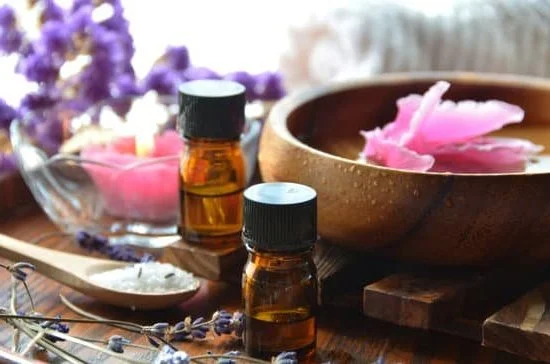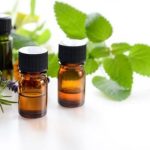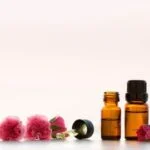Aromatherapy has gained significant attention in recent years for its potential health benefits, but can aromatherapy affect lungs? As the use of essential oils and aromatic compounds becomes increasingly popular, there is a growing interest in understanding how aromatherapy may impact respiratory health. In this article, we will delve into the connection between aromatherapy and lung function, exploring the science behind it and the potential effects on the respiratory system.
Aromatherapy is a holistic healing treatment that uses natural plant extracts to promote health and well-being. It encompasses various methods of application, including inhalation, topical application, and even ingestion in some cases. With its rise in popularity, individuals are turning to aromatherapy as a complementary approach for addressing a wide range of health concerns, including stress relief, pain management, and immune support.
The question then arises: how does aromatherapy specifically relate to lung health? Understanding the impact of essential oils on lung function requires a deeper exploration of the respiratory system as well as the scientific principles underlying aromatherapy. By examining these aspects, we can gain insight into whether aromatherapy holds potential benefits for supporting lung health and overall respiratory wellness.
Understanding the Respiratory System
The respiratory system is a complex network of organs and tissues that work together to facilitate the exchange of oxygen and carbon dioxide in the body. The primary organ of the respiratory system is the lungs, which are responsible for taking in oxygen from the air and expelling carbon dioxide as waste.
In addition to the lungs, the respiratory system also includes the airways, such as the trachea, bronchi, and bronchioles, as well as the diaphragm and other muscles involved in breathing.
The main function of the respiratory system is to supply oxygen to all parts of the body while removing carbon dioxide produced by cellular respiration. Oxygen is necessary for cells to function properly, so any disruption in the respiratory system can have widespread effects on overall health. Proper lung function is essential not only for breathing but also for maintaining equilibrium within the body’s internal environment.
To ensure optimal lung health and function, it is important to understand how aromatherapy may impact the respiratory system. The use of essential oils in aromatherapy has gained attention for its potential benefits for lung health and overall well-being. By exploring the science behind aromatherapy and its effects on the respiratory system, individuals can learn how to incorporate this practice into their lung care routine for potential improvements in breathing and overall respiratory function.
- Structure and function of lungs
- Role of respiratory system in breathing and overall health
The Science Behind Aromatherapy
Aromatherapy involves the use of essential oils extracted from plants for their healing and therapeutic properties. These essential oils are derived through processes like steam distillation, cold pressing, or solvent extraction. Once extracted, the oils can be inhaled or absorbed through the skin to provide various health benefits. The science behind aromatherapy lies in the interaction between these essential oils and the body’s physiological and psychological processes.
The process of inhalation and absorption of essential oils is crucial to understand how aromatherapy affects the body. When inhaled, the aromatic molecules of essential oils travel through the nasal passages and into the lungs. From there, these molecules interact with olfactory receptors and stimulate the limbic system in the brain, which is responsible for regulating emotions, behaviors, and certain physiological functions.
Different methods are used to incorporate aromatherapy into daily routines for wellness purposes. These methods include diffusing essential oils into the air, inhaling them directly from a bottle or on a cloth, adding them to bathwater, or applying them topically when diluted with a carrier oil.
Each method allows for varying degrees of absorption and utilization by the body, depending on individual preferences and desired outcomes. Ultimately, understanding the science behind how essential oils interact with our bodies can help individuals make informed decisions about incorporating aromatherapy into their lifestyle for overall well-being.
- Steam Distillation
- Cold Pressing
- Solvent Extraction
Effects of Aromatherapy on Lungs
Aromatherapy, the practice of using essential oils for therapeutic purposes, has been gaining popularity as a natural approach to improving overall health and well-being. While it is often associated with relaxation and stress relief, aromatherapy also has potential benefits for lung health. Essential oils are known for their anti-inflammatory, antimicrobial, and respiratory-supporting properties, making them a valuable tool for maintaining healthy lungs.
The inhalation of essential oils can have a direct impact on the respiratory system. When inhaled, the aromatic compounds of the essential oils reach the lungs and are absorbed into the bloodstream. This process allows the beneficial properties of the oils to exert their effects within the body. For example, certain essential oils have been found to reduce inflammation in the airways, ease breathing difficulties, and support overall respiratory function.
Research has shown that aromatherapy can positively influence lung health. Studies have demonstrated that certain essential oils possess bronchodilator effects, which can help relax and open up the airways. Additionally, some essential oils exhibit antimicrobial properties that can help combat respiratory infections and promote clear breathing. The use of aromatherapy as a complementary approach to traditional respiratory care is increasingly recognized in both conventional medicine and holistic wellness practices.
| Essential Oil | Properties |
|---|---|
| Eucalyptus | Decongestant, expectorant, antiviral |
| Peppermint | Bronchodilator, anti-inflammatory |
| Lavender | Anti-inflammatory, calming |
Essential Oils for Lung Health
Aromatherapy has been found to offer numerous benefits for lung health. Certain essential oils have properties that can support the respiratory system and improve overall lung function. When inhaled, these oils may have an anti-inflammatory effect, help clear airways, and promote easier breathing. Some essential oils also exhibit antimicrobial properties, which can be beneficial for protecting the lungs from infections.
One of the most well-known essential oils for lung health is eucalyptus oil. Eucalyptus has long been used to relieve symptoms of respiratory conditions such as asthma and bronchitis due to its decongestant and expectorant properties. Peppermint oil is another popular choice, known for its ability to soothe breathing difficulties and ease congestion. Additionally, tea tree oil is recognized for its antimicrobial qualities and can be effective in preventing respiratory infections.
Incorporating these essential oils into a daily routine through methods such as diffusion or steam inhalation may provide valuable support for lung health. However, it is important to consult with a healthcare professional before using essential oils, especially if you have underlying respiratory issues or are currently undergoing treatment for any lung-related condition.
| Essential Oil | Benefits |
|---|---|
| Eucalyptus Oil | Decongestant, expectorant properties; relieves asthma and bronchitis symptoms |
| Peppermint Oil | Soothes breathing difficulties, eases congestion |
| Tea Tree Oil | Antimicrobial; prevents respiratory infections |
Risks and Precautions
Using essential oils for lung health can bring about numerous benefits, but it is important to be aware of potential risks and precautions when incorporating aromatherapy into respiratory care. While essential oils are natural substances, they are also highly concentrated and potent, which means that they should be used with caution.
One primary concern when using essential oils for lung health is the risk of irritation or allergic reactions. Some individuals may be sensitive to certain essential oils, which can lead to symptoms such as skin irritation, respiratory discomfort, or even more severe allergic reactions. It’s crucial to perform a patch test before using any new essential oil and to always dilute them properly before inhalation or topical application.
In addition, there are specific safety guidelines that should be followed when using essential oils for respiratory support. For example, certain essential oils like eucalyptus or peppermint can be too strong for direct inhalation and may cause breathing difficulties if used improperly. It’s important to seek advice from a qualified aromatherapist or healthcare professional to ensure the safe and effective use of essential oils for lung health.
Furthermore, pregnant women, young children, elderly individuals, and those with pre-existing respiratory conditions should exercise extra caution when using aromatherapy for lung support. Consulting with a healthcare provider before beginning an aromatherapy regimen is advised in these cases to avoid potential complications or adverse effects. With proper knowledge and adherence to safety measures, the risks associated with using essential oils for lung health can be minimized, allowing individuals to experience the potential benefits of aromatherapy without unnecessary concerns.
Research and Studies
A growing body of research suggests that aromatherapy can have a positive impact on lung health. Several studies have explored the effects of essential oils on respiratory function, with promising results.
For example, a study published in the International Journal of Chronic Obstructive Pulmonary Disease found that inhaling essential oils such as eucalyptus and peppermint helped to improve respiratory symptoms in patients with chronic obstructive pulmonary disease (COPD). Another study in the Journal of Alternative and Complementary Medicine showed that lavender essential oil helped to reduce airway inflammation in individuals with bronchial asthma.
Ongoing Research and Future Studies
In addition to existing research, there is ongoing interest in further exploring the potential benefits of aromatherapy for lung health. Researchers are investigating the use of specific essential oils, as well as different methods of administration, to better understand their effects on respiratory conditions. With a focus on both traditional and complementary medicine, these studies aim to provide more comprehensive evidence for incorporating aromatherapy into respiratory care.
Expert Recommendations and Clinical Trials
Furthermore, experts in the field continue to advocate for more clinical trials to validate the efficacy of aromatherapy for lung health. By conducting rigorous scientific research, they hope to establish clear guidelines for using essential oils as part of respiratory treatment plans. As more evidence emerges from these studies, it may lead to greater acceptance and integration of aromatherapy within conventional healthcare practices for managing lung conditions.
Incorporating Aromatherapy Into Lung Care
The use of aromatherapy for lung care has gained traction in recent years as more people seek natural and holistic approaches to maintaining respiratory health. Aromatherapy, defined as the use of essential oils extracted from plants for therapeutic purposes, is being explored for its potential benefits on lung function and overall respiratory wellness. By incorporating aromatherapy into lung care, individuals may be able to support the health of their respiratory system in a gentle and non-invasive manner.
Choosing the Right Essential Oils
When considering aromatherapy for lung care, it is important to select essential oils that are known for their respiratory-supporting properties. Some essential oils that are particularly beneficial for lung health include eucalyptus, peppermint, tea tree, and lavender.
Eucalyptus oil, for example, is known for its ability to reduce inflammation and clear congestion in the lungs. Peppermint oil possesses cooling properties that can help alleviate breathing difficulties, while tea tree oil has anti-inflammatory and antimicrobial qualities that may help combat respiratory infections.
Methods of Application
There are several ways to incorporate essential oils into a lung care routine. Inhalation is one popular method, which can be done by using a diffuser or adding a few drops of essential oil to hot water and inhaling the steam. Direct inhalation from the bottle or applying diluted oil topically on the chest can also be effective methods for supporting lung health through aromatherapy.
Creating a Safe Aromatherapy Routine
It is crucial to observe safety precautions when using aromatherapy for lung care. Essential oils are highly concentrated substances that should be diluted before application to avoid skin irritation or other adverse reactions. Additionally, consulting with a qualified healthcare professional before beginning an aromatherapy regimen can help ensure that it is safe and suitable for individual needs.
By incorporating aromatherapy into their lung care practices with caution and proper guidance, individuals may discover an additional tool for promoting healthy respiratory function and overall well-being.
Conclusion
In conclusion, aromatherapy has the potential to positively affect lung health and overall respiratory well-being. The use of essential oils in aromatherapy has gained popularity for its various health benefits, including supporting the respiratory system. Through inhalation and absorption, essential oils can impact lung function by reducing inflammation, improving breathing, and promoting overall respiratory health.
As discussed in this article, there are specific essential oils that have been found to be particularly beneficial for lung health. These oils, such as eucalyptus, peppermint, and tea tree oil, possess properties that can support respiratory function and provide relief from certain lung conditions. However, it is important for individuals to be aware of the potential risks and side effects of using essential oils for lung health, as well as understand proper dilution and usage guidelines to ensure safety.
It is crucial for individuals interested in incorporating aromatherapy into their lung care routine to seek guidance from healthcare professionals or certified aromatherapists. By doing so, they can create a safe and effective aromatherapy routine tailored to their specific respiratory needs. Ultimately, the potential benefits of aromatherapy on lung health should be further explored and considered as part of an overall approach to maintaining respiratory wellness.
Frequently Asked Questions
Can Aromatherapy Cause Lung Problems?
Aromatherapy, when practiced safely and with the guidance of a trained professional, is generally considered safe. However, there is some concern that inhaling essential oils directly or in large amounts could potentially cause lung irritation or other respiratory problems. It’s important to use aromatherapy in a well-ventilated space and to avoid inhaling essential oils at high concentrations.
What Are the Bad Side Effects of Aromatherapy?
While aromatherapy is generally seen as beneficial for relaxation and stress relief, it’s crucial to be aware of potential negative side effects. Some people may experience allergic reactions to certain essential oils, while others might have skin irritation or sensitivities. Additionally, using too much of certain essential oils can lead to headaches, nausea, dizziness, or even difficulty breathing.
Can Breathing in Too Much Essential Oils Be Harmful?
Breathing in too much essential oil vapor or using undiluted oils directly on the skin can indeed be harmful for some people. The potent nature of essential oils means that they should be used sparingly and with caution.
Inhaling excessive amounts or using them without proper dilution can lead to respiratory issues such as coughing, wheezing, or shortness of breath. It’s important to always use essential oils according to recommended guidelines and seek advice from qualified practitioners when in doubt.

Are you looking for a natural way to improve your health and wellbeing?
If so, aromatherapy may be the answer for you.





